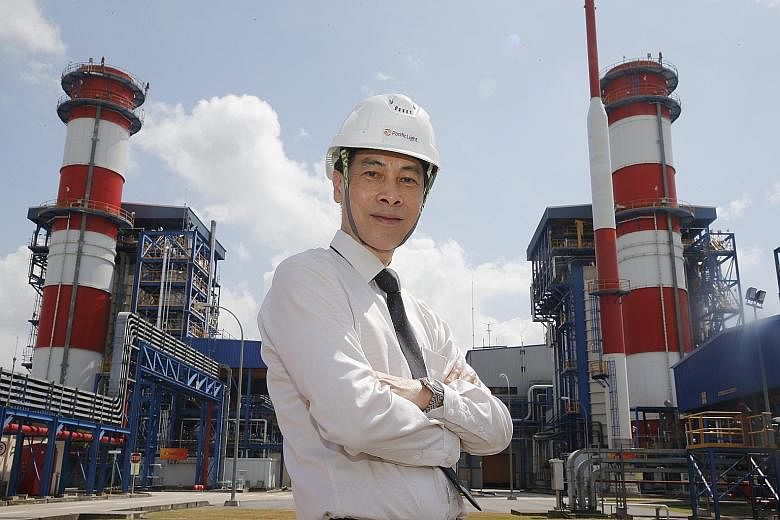PacificLight is one of the newest kids on the power generation block.
Its $1.2 billion plant on Jurong Island began operating four years ago and is fitted with relatively new equipment, making it more energy efficient than older plants.
Since then, the firm has spent another $5 million to further reduce its carbon footprint, said its chief executive Yu Tat Ming.
This is done, for instance, by redesigning the fuel-supply system in its plant to bypass two energy-intensive compressors.
These efforts have led to a 1.5 per cent reduction in the plant's carbon emissions - equivalent to taking 15,000 cars off the road.
But despite this, PacificLight's annual operating cost is set to go up by $8.25 million in 2020, when the first carbon tax payment is due. The payment will be based on emissions next year.
The carbon tax will initially be set at $5 per tonne of greenhouse gas emissions until 2023, with plans to increase it to between $10 and $15 per tonne by 2030, Finance Minister Heng Swee Keat announced yesterday.
A carbon tax is commonly used around the world to control the amount of earth-warming greenhouse gases that is released into the atmosphere.
But Mr Yu said that it would be a challenge for his plant to become "greener", considering that it is relatively new and already fitted with energy-efficient fixtures. The life cycle of an industrial plant is about 25 years, and it is usually retrofitted only at the midway mark.
Mr Yu said a differentiated carbon tax system - in which companies that are more energy efficient pay less or even no tax while those that are less efficient pay more - would be fairer.
But he acknowledged that there is always room for improvement. "We will continue to look for ways to improve energy efficiency at our power plant, however modest they may be," he said.
One way is to install energy-saving devices, such as solar-powered lighting, throughout the facility.
PacificLight will also look into increasing the use of solar energy within its premises and those of its customers.
Mr Yu said the company will find ways to continue to supply its customers with energy "in as green a way as possible".
Audrey Tan


